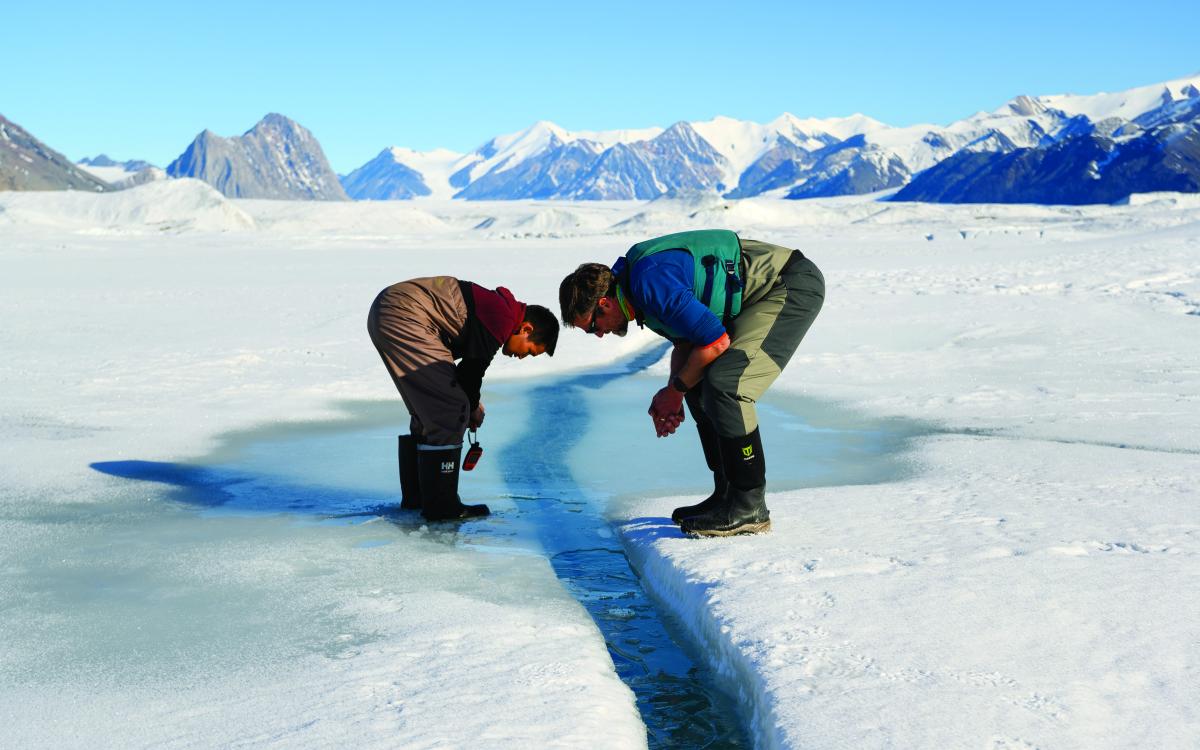When the Milne Ice Shelf collapsed in July 2020, one of the last, thickest—and at the time, most intact—ice shelves
in the Canadian Arctic lost a chunk of itself that was bigger than Manhattan. Researchers wanted to find out what the breakup meant for the entire ecosystem and what it said about climate change. But, delayed by the pandemic, they didn’t return to Milne Fiord, on the northwestern coast of Ellesmere Island, for two years.
Here, Joseph Shoapik, a resident of Grise Fiord, peers into a nearby crack in the ice alongside Alex Forrest, a limnologist from the University of California, Davis. Just below this ice, a thin layer of freshwater used to float on top of the sea water in an epishelf lake—the last of its kind in Canada.










